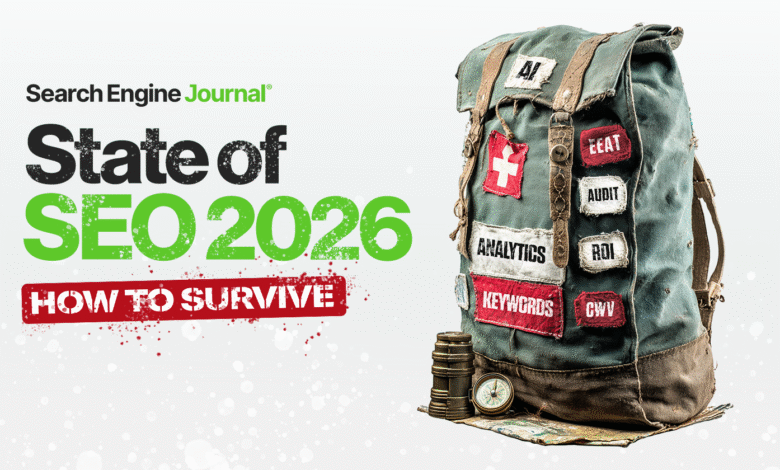SEO 2026: Your Survival Guide for the Future

▼ Summary
– Original content creation is the most impactful SEO activity but also the most time-consuming and difficult to scale.
– SEO professionals are adopting three main strategies: AI-heavy adoption, authority building, and hybrid approaches combining AI with human expertise.
– AI tools are widely used for efficiency but are also seen as a major threat due to concerns about reduced website traffic from AI-generated answers.
– E-E-A-T (Experience, Expertise, Authoritativeness, Trustworthiness) has become a key investment focus to differentiate human content from AI-generated material.
– SEO budgets remain strong with 65% expecting no cuts, driven by proven results including increased organic traffic and conversions.
Original content creation remains the undisputed champion for SEO success, with two-thirds of professionals identifying it as their most impactful strategy. Despite its effectiveness, scaling high-quality content presents a significant hurdle, consuming more time than any other SEO activity according to over 40% of experts.
Our latest annual State of SEO report, drawing from the experiences of 371 seasoned professionals across 52 countries, reveals how the industry is adapting to rapid changes. These insights come from practitioners with extensive field experience, offering a realistic view of current effective tactics and future investment priorities.
The research identifies three emerging strategic approaches as teams respond to AI integration. Twenty-two percent of organizations are embracing heavy automation, prioritizing volume and efficiency. Nearly half of all professionals (49%) are concentrating on building authority through E-E-A-T principles, emphasizing real-world experience, deep expertise, authoritativeness, and trustworthiness. A majority (58%) are adopting hybrid methods, using artificial intelligence to support and enhance human-created content rather than replace it.
When evaluating what delivered the strongest results this year, original content creation led at 66%, followed by content updates (42.6%) and technical improvements (42.3%). This reinforces that quality content remains irreplaceable, though teams are increasingly leveraging AI to manage production demands without sacrificing standards.
A notable finding shows that while cross-department collaboration currently has minimal impact (only 9%), more than a third of companies plan to increase these efforts, signaling a major opportunity for those willing to break down internal barriers.
Tool usage data reflects these shifts. Analytics and reporting tools lead at 56% adoption, while AI writing assistants have surged to 42.3%, matching the usage of technical SEO tools. The preference for integrated, cross-functional platforms (51.2%) indicates a move toward consolidated solutions.
However, AI adoption comes with serious concerns. An overwhelming 77% of SEO experts worry that AI-generated answers may reduce click-through rates to websites, representing their primary apprehension about the future. This places professionals in a difficult position, needing to use AI to remain competitive while viewing it as a potential threat.
In response, nearly half of all respondents plan to invest in E-E-A-T next year. This strategic focus acknowledges that while AI can process information, it cannot replicate genuine human experience or original research. Related investments in topical authority and content architecture (33%) further demonstrate efforts to establish irreplaceable expertise within specific domains.
Algorithm changes continue to be the biggest challenge (59%), followed by content workflow issues (32%). Rather than waiting passively, teams are proactively addressing these through AI training (42%) and improved interdepartment coordination (37%).
Budget trends remain encouraging despite these challenges. Only 43% of companies reduced SEO spending last year, and 65% anticipate no cuts in the coming year. This confidence stems from measurable outcomes: 60% reported increased organic traffic, and 34% saw higher leads and conversions. Success metrics are also evolving, with 74% tracking organic traffic and 60% focusing on qualified leads and sales, demonstrating a shift toward proving tangible business value.
Looking ahead, technical issues (28%) and securing leadership support (26%) remain obstacles, but the industry is responding with training and strategic adaptation. Whether organizations align with AI-heavy, authority-focused, or hybrid approaches, the common thread is combining technological efficiency with human insight.
This comprehensive report provides a roadmap for 2026 planning, featuring insights from professionals navigating every major market. It offers detailed analysis on tool adoption, scaling challenges, measurement practices, and expert guidance for managing the AI transition. While real challenges exist, the data reveals a resilient community developing effective strategies for sustained success.
(Source: Search Engine Journal)





